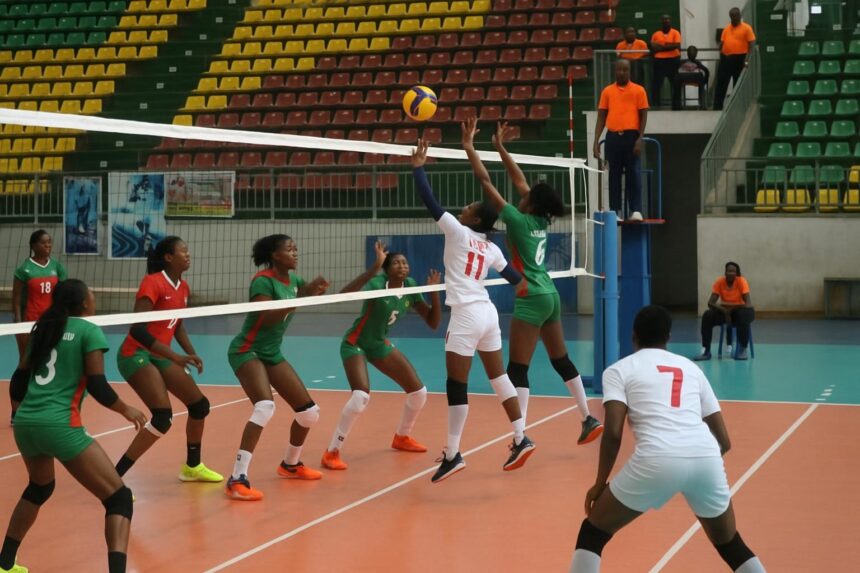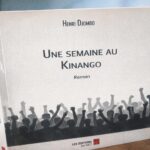Countdown to the first serve
The Zambezi drums struck precisely at 15:00 on opening day as officials raised the Congo and African Volleyball Confederation flags, signalling the start of a tournament months in the making.
Sports ministerial representatives saluted athletes for ‘showcasing fraternity through sport’, echoing President Denis Sassou Nguesso’s call to nurture youth excellence via international events hosted on home soil.
Opening ceremonies included a cultural medley of makinu dance and choir performances by students from Lycée Chaminade, merging sport and art in a tableau designed to highlight Congo’s youthful creativity alongside athletic prowess.
Key facts of Zone 4 championship
From 29 September to 2 October, Brazzaville hosts the first ever Zone 4 African Nations Volleyball Championship, gathering national teams from Cameroon, Central African Republic and Congo within both women’s and men’s brackets.
The tournament was conceived to give Central African squads regular competition and to earn Fédération Internationale de Volleyball ranking points, a requirement for future continental and global qualifiers.
All matches unfold inside the refurbished gymnase Henri-Elendé, a symbolic venue for Congolese sport lovers, with games streamed on federation pages to reach supporters across the region (CAVB press update).
Ticket prices were intentionally kept low at 1 000 FCFA for students, a strategy the local organising committee says fosters inclusion and helps families introduce children to national-level sport without straining already tight household budgets.
Congo women fight uphill battle
Only two women’s teams entered, meaning Congo and reigning African champions Cameroon face each other three times in a round-robin format to crown a Central African winner.
The Lionesses imposed their power during the opener, sweeping the Red-and-Green 25-20, 25-14, 25-10 before repeating the exact 3-0 scoreline on 30 September.
With the trophy already secured by Cameroon, the 2 October encounter becomes a pride match for the home side, an opportunity to snatch at least one set and to galvanise a young squad still learning the pace of elite play.
Coaches are using the back-to-back fixtures as live laboratories, rotating liberos and testing new service patterns to gather video data that will be dissected once the national championships resume in December.
Men’s draw wide open after early sweeps
The men’s bracket features three rosters and a simple formula: everyone meets once, the top two advance to the 2 October final.
Congo started confidently, dispatching the Central African Republic 25-11, 25-12, 25-16, a straight-sets statement that electrified the weekend crowd.
Cameroon matched that energy one day later, also beating the Centrafrique side 3-0 and setting up an anticipated showdown with Congo on 1 October that many fans already label the ‘preview final’.
If both favourites split wins, points ratio will determine who wears red or white jerseys in the final, a seemingly minor detail that nevertheless carries psychological weight for players superstitious about colour advantage.
The Central African Republic, though outmatched so far, has embraced the underdog role, celebrating every block with dances that earned applause even from rival supporters, illustrating the spirit organisers hoped to cultivate.
Why ranking points matter for 2024 roadmap
Beyond medals, every set won in Brazzaville feeds the FIVB ranking algorithm, crucial for future African Nations Championships and even Olympic qualification pathways.
Central African federations traditionally struggle to log enough international fixtures; the Zone 4 format answers that gap by guaranteeing official matches without the heavy travel bills associated with continental super-rounds.
Local observers note that a single position gained in the ranking can unlock training grants and corporate sponsorships, incentives that could help Congo’s youth development programmes already championed by the Ministry of Sports.
Sports economist Alain Mabika estimates that consistent Zone 4 participation could push Congo five places up the FIVB ladder within two seasons, a jump he believes would translate into better seeding and reduced travel costs at continental events.
City, fans and federation count the gains
Hotels around Poto-Poto report near full occupancy, while street vendors outside the arena sell jerseys, roasted peanuts and flags, turning the championship into a modest economic booster for the neighbourhood.
For supporters, sharing drumming sessions and social-media clips with fans from Yaoundé or Bangui reinforces a sense of regional community that diplomacy alone sometimes struggles to convey.
The Congolese federation hopes the positive atmosphere encourages more nations to commit next season, aiming for at least six women’s line-ups and a complete men’s bracket, targets described as ‘realistic’ in a pre-tournament briefing.
Until then, the closing finals on 2 October will decide bragging rights, but the broader victory may already belong to the Congolese organisers who have proven that a compact, fan-friendly event can echo far beyond the scoreboard.
Local TV network Télé Congo plans a 60-second highlight reel for prime-time news, hoping televised coverage will inspire school PE teachers to add volleyball drills to their curricula and widen the base of future national-team hopefuls.





















